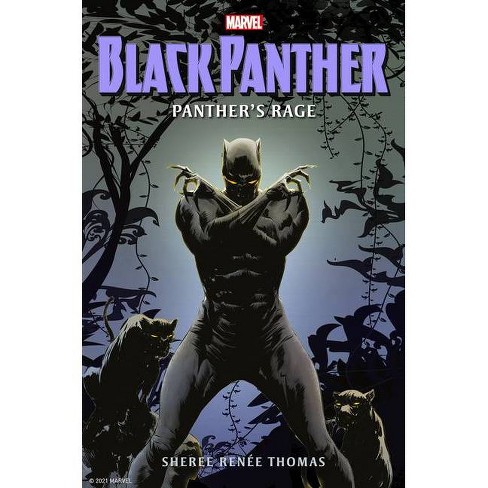
In order to read Black Panther: Panther's Rage by Sheree Renée Thomas, I rewatched T'Challa's appearances in the Marvel universe.
This link will take you to a discussion of superheroes and series fiction whose conclusion is to pay attention to character over the long haul. It is a risk to write any sequel. The link weighs them.
What I loved about Civil War and Black Panther are the more personal aspects of T'Challa's story--the loss of fathers and how that drives both him and his enemy. T'Challa's revelation in Civil War may be the most powerful among the ensemble. However, these two stories might have been combined into one more powerful story.
En route to discussing WW84, I posted five rules for superhero stories here. These might make some stories better. The extraneous in Black Panther could have been cut. Andy Serkis created a fascinating character in Ulysses Klaue, making me curious about a deeper look into his person, but as the rules listed above suggest, Klaue lacks both rivaling power and a back story to be anything more than, at best, a MacGuffin. It's hard to believe he ever presented much of a problem to Wakanda. These stories should have been nothing but the clash between Erik Killmonger and T'Challa, developing both characters in greater depth.Wakanda, however, is a rich mine and presents a story worth exploring itself. There have been rumors that a new story about this is on the way.
In some ways, Black Panther: Panther's Rage corrects this. Klaue falls away, and the story becomes an intriguing battle of strength, will, and philosophy between Killmonger and T'Challa. This is it's unique strength the novel draws on--something I hadn't expected.
The five rules I listed above don't much come into play in this novel except somewhat for Monica, T'Challa's girlfriend, and Erik Killmonger. Monica's story may be the richest here as the person who has to overcome the most. She is opposed by people in Wakanda as an outsider. T'Challa's involvement with anyone outside Wakanda seems to be an issue--such as his work with the Avengers. It is a battle of identity, of purity. Does Wakanda contaminate itself by involving themselves with Monica, an American, and the Avengers?
Elsewhere I read that Thomas's novel is a novelization of the 1973-1976 comic series also called Panther's Rage. I skimmed the opening, and they don't seem to have much overlap. Maybe they do later on. Thomas's version does seem to link itself more closely to the cinematic versions, rather than here, but that would require more research than I have time to spelunk at the moment. Feel free to explore for yourself.
The opening paragraph:
Night became her. When he watched Monica, the blue tinge of club lights shimmered across her velvety skin. He knew that she had become as much a part of him as the molvecules of night. In a few months, To T'Challa's surprise, she had become his necessarty thing: the air he breathed.
If you love the movies, you'll love this book. It looks at the battle between Killmonger and T'Challa from quite a different angle.

No comments:
Post a Comment